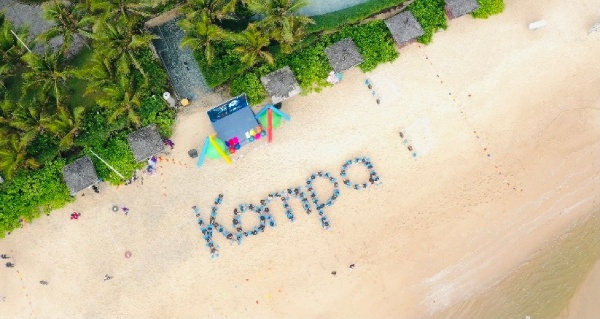Market research is necessary for making any business decisions based on data, and while exploring your options for high-quality market research, you may be surprised to find out just how costly that research can be. This article will explain why the costs of market research can be so high.
In this case, the target audience refers to the group of people you are interested in researching. Please note that due to time constraints, logistics, and budget limitations, research cannot analyze the entire population. Therefore, you should take the necessary time to identify the target audience effectively and estimate the percentage representing a specific demographic group.

Knowing the target audience will help you know the cost
With B2C, we are referring to market research aimed at end consumers. These are the individuals who purchase your products or services and are the ones you need to know in detail. Here, you must identify their socio-demographic characteristics, such as gender, age, socioeconomic status, location, education level, etc.
On the other hand, in B2B, if you are conducting research where the ultimate customer is a company, you need to identify characteristics such as the number of employees, revenue, industry and sector, location, etc. Remember that the more information you provide to the market research agency responsible, the better results you will achieve.
The cost of your market research largely depends on the type of research you need to conduct. Below are some questions that can help you determine whether you need quantitative or qualitative analysis:

Research method is an important factor in market research costs
Results here are presented in the form of statistical data that allows you to gain a deeper understanding of your market. Typically, this type of research is conducted through surveys, which can be administered in various ways:
Each option has a range of limitations and associated costs. For example, in the case of online surveys, it’s essential that you have a corresponding database with the characteristics of the target audience you identified earlier. In contrast, in other cases, you must consider the labor costs of surveyors and the challenges involved in locating and interviewing each individual.
In this case, the purpose is to understand the motivations behind why your target audience buys your products or services. Don’t expect statistical results; instead, expect richer information about who your target audience is, their motivations, needs, and preferences. This is ideal if you are looking to test a new concept, product, or marketing strategy.
Data is typically collected through focus group sessions or in-depth interviews. For both cases, you need to allocate a budget for facilitators, location, transportation, etc.
Logically, the time allocated for data collection, analysis, and presentation of results for all market research projects is not the same. Depending on the type of analysis and the sample size, more or less time will be required.
For example, a focus group may take around 2 or 3 hours for the discussion. Then, you need additional time to review notes and draw conclusions. In contrast, in-person interviews can take about 6 hours per person, including the conversation, transcription, and analysis.

The number of participants will affect the cost of the study
As mentioned earlier, the number of participants in research affects the final cost. As you can imagine, conducting research with 10 cases will never be the same as with 30 or 100 cases. Therefore, you should take the necessary time to estimate the sample size to be evaluated.
In qualitative research, a good sample may include 5 to 10 participants per demographic group you want to analyze. In quantitative research, you should have a much larger representation to be consistent with the total number of your target audience.
A final factor to consider is the reality that incentives are often provided to research participants. It can be anything from gift cards to your Brand’s products or any other option you can think of and your audience prefers.
A market research project is a significant investment. Anything that allows you to get more and better feedback should be considered. You don’t want to spend money to get a result that doesn’t represent your market accurately.Kompa – Assisting Your Market Research Activities
Kompa is a technology company that applies data (AI, machine learning) on a large-scale data (Big data) platform, providing data analysis solutions and equipping customers with invaluable insights to optimize their business operations in various aspects such as Marketing, Finance, Operations, and other fields.
For over 20 years, Kompa has been accompanying hundreds of small and large businesses in Vietnam, such as Vingroup, Masterise Homes, Vinamilk, SSI, MB bank, Tan Hiep Phat, Shopee, Vietjet Air, and more.

Kompa provides valuable insight for market research activities
Besides market research costs, you should focus on the various benefits it brings to your organization. The return on investment is immeasurable, especially when it allows you to realize that perhaps the ideas you have in mind do not align with customer needs.

